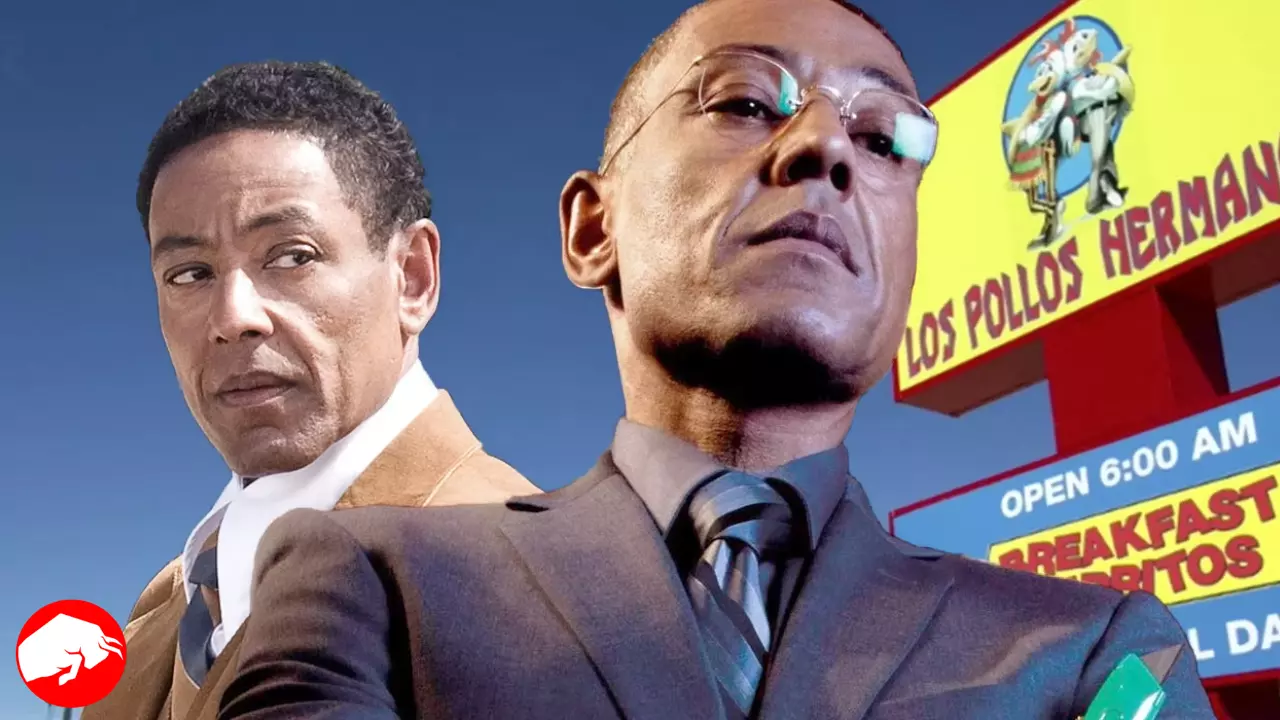Los Pollos Hermanos
Gustavo ‘Gus’ Fring is a name that carries with it a weight of mystery and intrigue. When people hear his name, especially those who know about his character, a shiver of apprehension runs through them. He’s not just any character; he’s a mastermind. This man wears many hats: he’s a meticulous kingpin who runs his operations with precision, a successful entrepreneur who knows how to make a business thrive, and a philanthropist who gives back to the community.
His character is like an intricate puzzle, full of depth and dimensions that make him one of the most compelling and layered characters we’ve ever seen on television. This article is dedicated to diving deep into the world of Gus Fring. We will explore his mind, his driving forces, and the genius strategies he employs. We aim to understand every facet of his persona, making sure we leave no detail unexplored.
A Pillar of the Community
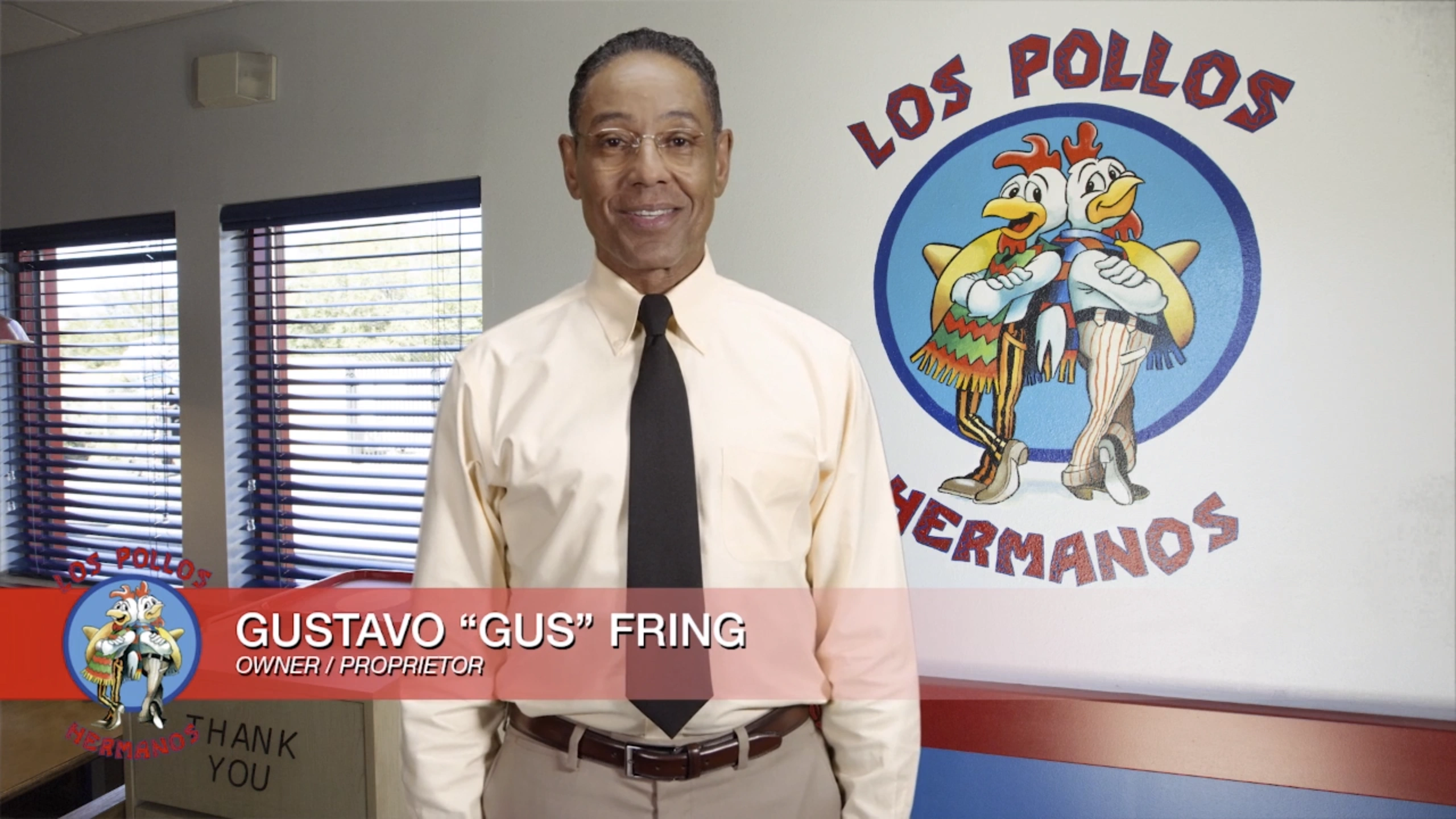
Gus Fring’s public image is nothing short of impressive. When people see his Los Pollos Hermanos restaurants, they see a successful chain that caters to the tastes and hunger of the community. The golden chicken logo and the bustling outlets are a testament to his skills as a savvy businessman. But Gus’s contributions don’t just end with delicious meals. He steps beyond the role of a mere entrepreneur by actively involving himself in the welfare of the community. By generously donating to local charities and organizations, he positions himself as someone who genuinely cares about the well-being of others.
But there’s more than meets the eye. This image of a magnanimous businessman is a meticulously crafted mask. Behind the scenes, he operates in the shadows, running a vast and complex underworld network. To the unsuspecting eye, he’s merely an exemplary figure in the business world. But for those in the know, this façade serves a dual purpose: it keeps the authorities off his trail and ensures that he’s seen as an upstanding and respectable figure among the community and his peers. It’s a brilliant strategy, demonstrating Gus’s knack for playing multiple roles and maintaining a delicate balance between light and shadow.
The Double Life: Managing Drug Cartels and Fried Chicken
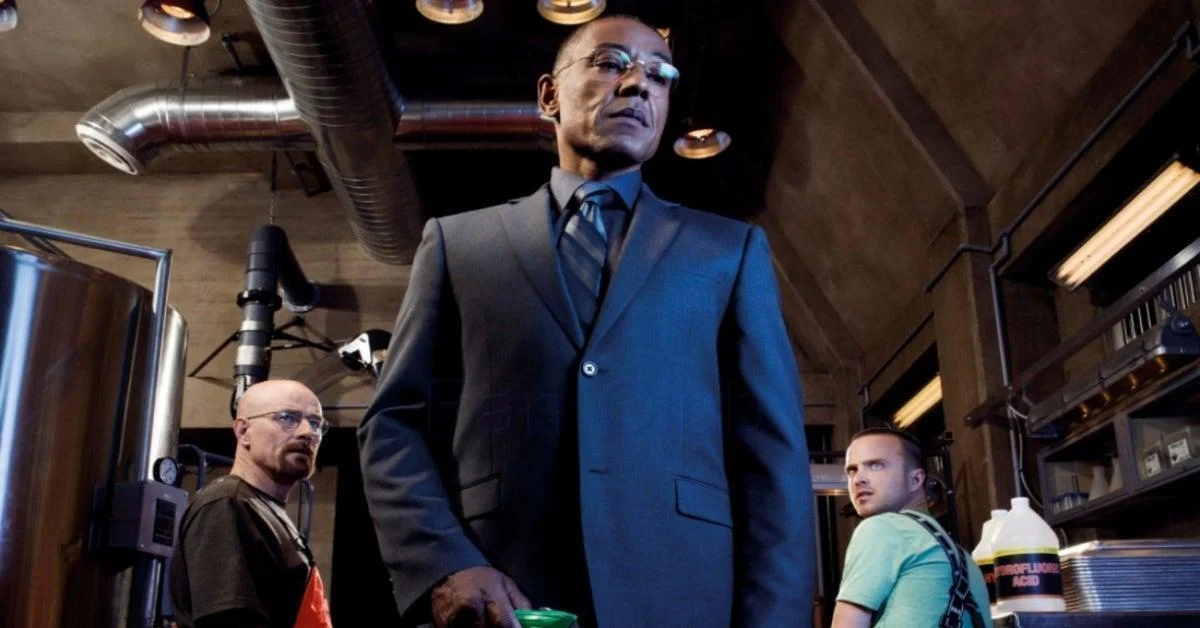
Behind the image of the successful restaurant chain owner, Gus Fring is much more than what he portrays publicly. His smooth operations in the drug trade give a glimpse into his incredible talent for strategy and management. While most would find it challenging to manage even one large-scale operation, Gus effortlessly juggles his legitimate restaurant business and his illicit drug empire simultaneously.
This unique skill set is not something every businessman possesses. To play both sides of the coin requires not just business acumen but also psychological insight. He understands the nuances of each realm and can switch between them without missing a beat. One moment, he’s the face of Los Pollos Hermanos, ensuring quality and service, and the next, he’s plotting and strategizing in the shadows, ensuring his drug operations go unnoticed and unhindered.
Moreover, his demeanor plays a huge role in his success. Always calm and collected, Gus never lets emotions cloud his judgment. In the volatile world of drugs, where trust is scarce and danger lurks around every corner, his cool and calculated approach sets him apart. He’s always a step ahead, anticipating moves and making decisions that ensure his continued dominance in the treacherous cat and mouse game that the drug trade often becomes.
In such a world, it’s not just about making the right moves but also about staying alive, and Gus’s strategic mind combined with his composure makes him an adversary not to be underestimated.
The Balance of Fear and Respect
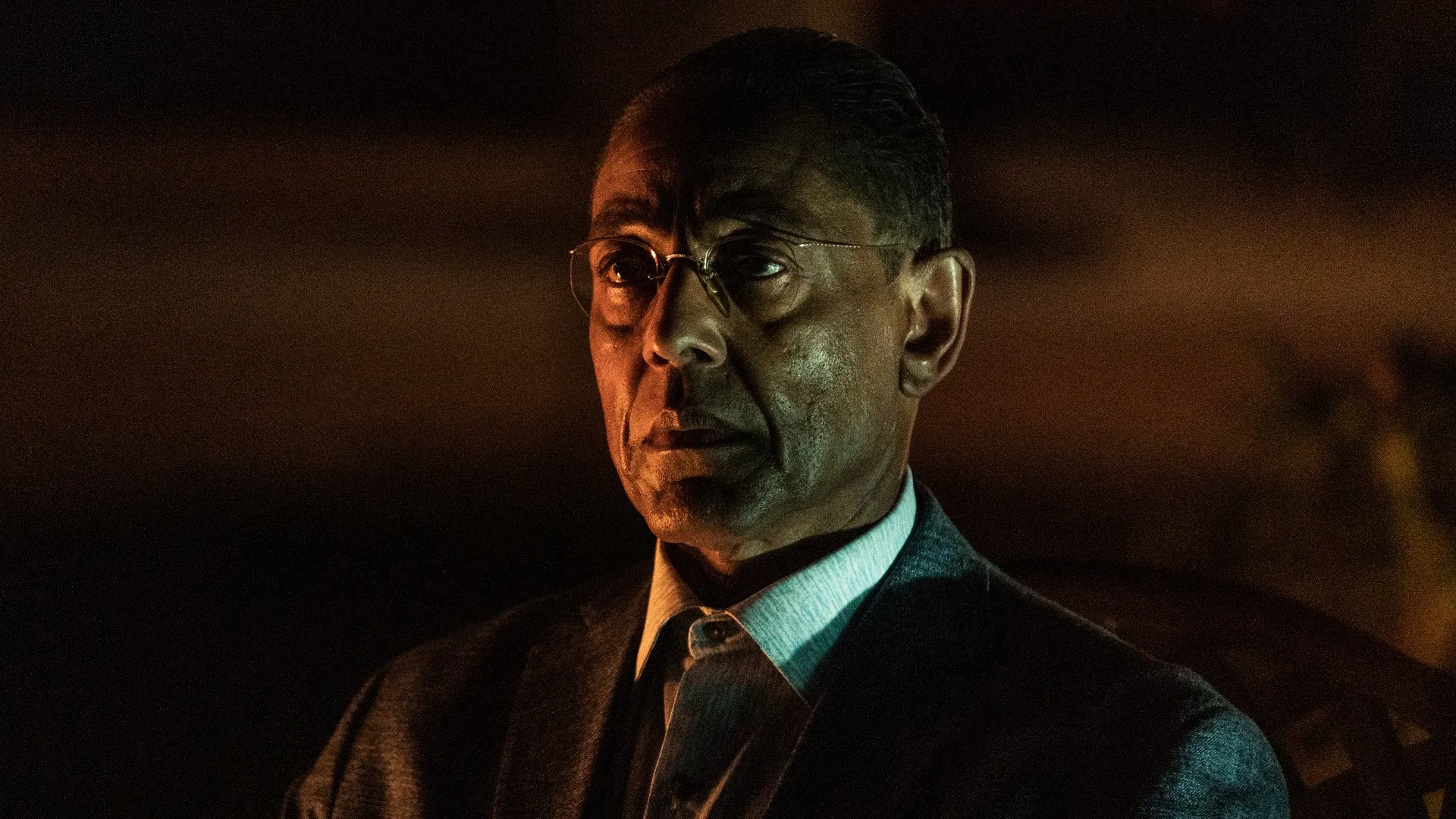
Gus Fring isn’t just a typical villain; he’s a study in contrasts and complexities. While many antagonists rely purely on brute force or sheer power, Gus employs a more refined and cerebral approach. His understanding of human nature and psychology is deep and profound. This knowledge isn’t just theoretical for him; he utilizes it as one of his strongest tools in his arsenal.
Take his relationship with Walter White, for example. Walter, who began as an unassuming high school chemistry teacher, transformed into a key player in the meth world. Their interactions serve as a masterclass in psychological warfare. Gus could decipher Walter’s motives, strengths, weaknesses, and fears. Instead of immediately resorting to threats, he often chose a more nuanced approach. He knew exactly when to push Walter’s buttons with intimidation and when to pull back, offering collaboration or a semblance of respect.
This duality in approach—sometimes playing the role of a mentor, at other times the role of a silent threat—kept Walter constantly on his toes. And this unpredictability was precisely Gus’s strength. He never allowed those he dealt with to get comfortable or think they had figured him out.
His interactions with Walter were not just about business but also showcased a high-stakes chess game. Gus was always planning, always calculating. He had the uncanny ability to anticipate not just Walter’s immediate reactions, but also his long-term strategies. By thinking several moves ahead, Gus ensured he remained in control, even when the situation seemed perilous.
It’s this combination of psychological insight, tactical planning, and adaptability that makes Gus Fring stand out in the pantheon of television villains. He’s not just a character; he’s a lesson in strategy and human behavior.
A Tragic Past Shaping a Ruthless Present
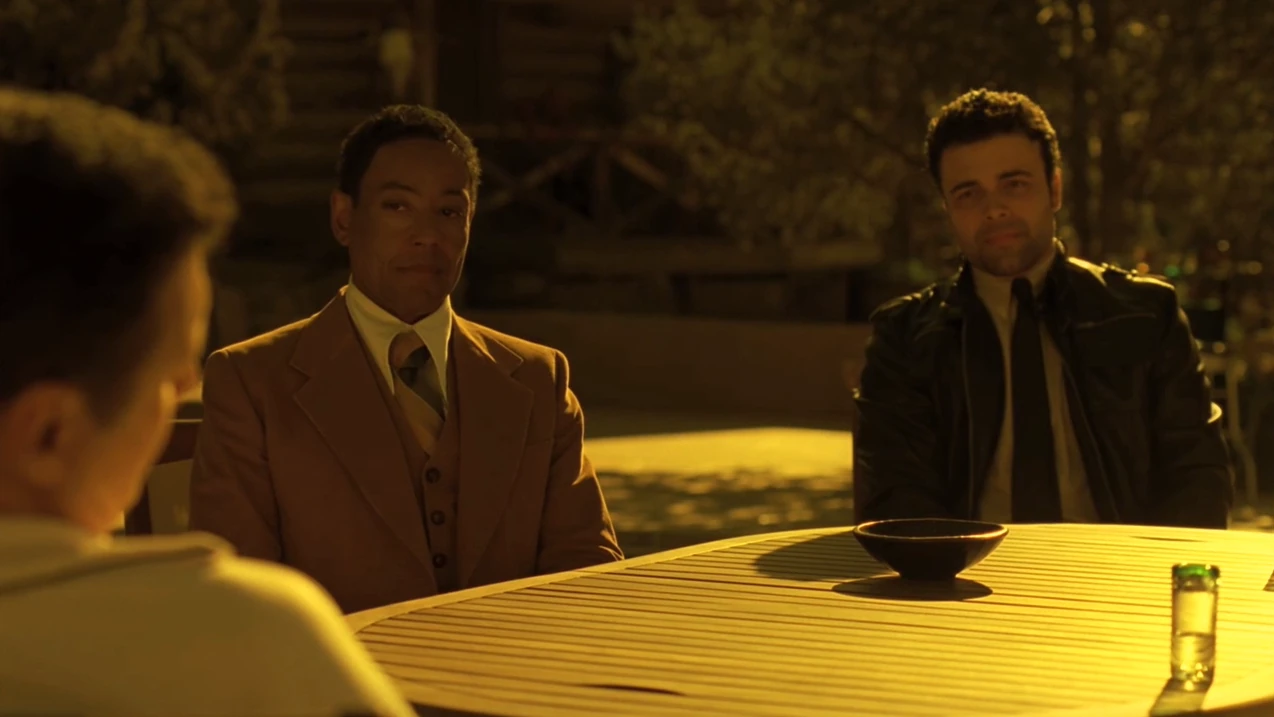
Gus Fring is not a character born out of a vacuum. His past is a tapestry of events and experiences that forged him into the enigmatic figure we see on screen. Understanding his roots in Chile provides a window into his psyche and gives context to his actions.
The events that transpired in Chile have left an indelible mark on Gus. The trauma of loss and the sting of betrayal were not mere episodes in his life; they were defining moments. From these harsh lessons, he learned the importance of being in control, of never showing vulnerability, and of always staying several steps ahead of adversaries. These experiences, which might have broken a lesser man, instead honed Gus’s resilience and gave rise to his uncompromising nature.
Yet, it’s this very backstory that adds layers to his character, making him more than just a stereotypical villain. The audience is presented with a man who has been scarred by his past, making his actions, however cold and calculated, somewhat understandable. When we peer into his history, we see a human being who was shaped by circumstances, decisions, and fate.
This narrative choice by the creators is a testament to the complexities of human nature. It’s a reminder that even those who seem purely evil have reasons for their actions, born from experiences that others might never fully grasp. By giving Gus a deeply tragic and challenging past, they challenge viewers to grapple with their own perceptions of morality, empathy, and judgment.
In essence, Gus becomes a multi-dimensional character. Viewers are torn between their fear of him and their empathy for the tragedies he’s endured. It’s this dichotomy, this internal conflict that the audience feels, which makes Gus Fring one of the most compelling and memorable characters in television history.
Legacy of Gustavo ‘Gus’ Fring
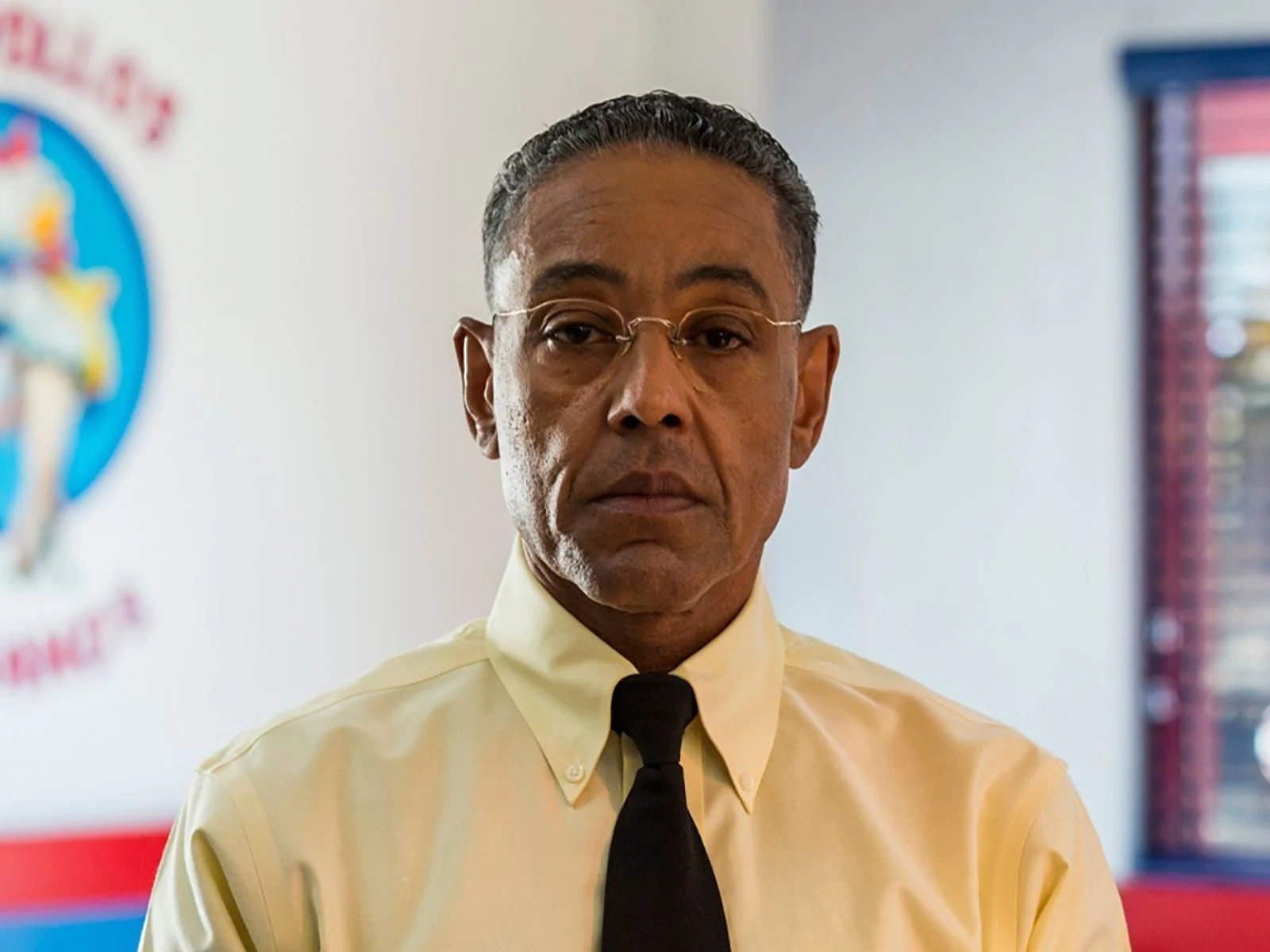
Gus Fring isn’t just another character; he’s a masterclass in character development and storytelling. From the moment he steps into the frame, viewers are immediately captivated by his commanding presence. His calm, calculated demeanor, coupled with his sharp business acumen, makes him a character who demands attention and respect. But it’s not just his tactical skills or his success in the underworld that make him stand out; it’s the layers beneath his stoic exterior that truly captivate audiences.
His story isn’t a simple tale of villainy. Gus is a product of his experiences, molded by a past that whispers its tales of pain, betrayal, and resilience. These memories, concealed behind his poised facade, provide glimpses into a soul that has known both triumph and tragedy. And it’s this rich tapestry of emotions and history that makes him more than just a villain; it makes him real. Viewers are given the chance to see beyond the drug lord, into the heart of a man who, in another life, might have been much different.
This depth of character, combined with the impeccable portrayal by the actor, ensures Gus remains unforgettable. He embodies the complexities of human nature, forcing viewers to confront their own judgments and preconceived notions about right and wrong, good and evil.
It’s rare for a character to resonate so deeply with audiences, to challenge their perspectives and elicit such strong reactions. Gus Fring does all this and more, cementing his legacy as not just a pivotal character in a series, but as a true icon in the world of television. He’s a testament to the power of nuanced storytelling and character development, serving as a benchmark for future characters and narratives.
A villain, a genius, a legend—Gus Fring is all that and more.


